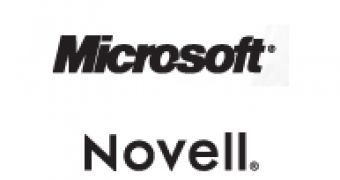The number of companies that are moving to take advantage of the Windows and Linux interoperability deal inked by Microsoft and Novell back in 2006 continues to grow, with the duo pointing out that customers are attracted to the benefits catalyzed by their collaboration. Two recent studies from Forrester Consulting and Oliver Wyman Group deliver new insight into the Return on Investment advantages and additional benefits for customers embracing Windows Server and SUSE Linux Enterprise for their heterogeneous environments.
Forrester: The Total Economic Impact of Microsoft And Novell Interoperability Solutions, a study commissioned by both the Redmond company and the Linux vendor, is available for download here. Forrester Consulting reveals that, in certain cases, early adopters that have gone with Microsoft-Novell interoperability solutions have managed to see their ROI go as high as 82% in under a year. The Return on Investment in the particular cases detailed by Forrester Consulting is related to licensing fees, implementation and hardware.
“These studies demonstrate that, when you do the math, interoperability between Windows and Linux is beneficial to our customers,” Ted MacLean, general manager for Strategic Partnerships and Licensing at Microsoft, noted. “In today’s changing business environment, having the right tools and support to help companies utilize existing IT investments while improving performance is critical.”
Companies with mixed source environments, looking to make the jump to Windows Server and SUSE Linux, should also take a look at Oliver Wyman: A Perspective from Enterprise IT Executives: Understanding the Evolution of Linux Support Models, also available for download. This particular study quantifies the advantages brought by the Expanded Support offering from Novell, in the context in which the customers are migrating from rival Linux distros to SUSE Linux. The findings are valid even for customers running Red Hat distributions of Linux. Following the deal with Novell, Microsoft attempted to pen a similar agreement with Red Hat, but got shut down.
“We recognized that companies using other distributions of Linux, such as Red Hat, wanted choice and the ability to take advantage of our joint interoperability solutions but needed help in easing their transition to SUSE Linux Enterprise, as such, we developed our Expanded Support Service offering to give customers confidence in knowing they will be fully supported over the course of their Linux migration,” Joe Wagner, senior vice president and general manager of Global Alliances at Novell, added. “Based on the results from Oliver Wyman, it’s clear our Expanded Support offering is helping to resolve the challenges associated with transitioning to a new Linux distribution while paving the way for customers to enjoy the immediate benefits of our joint Microsoft-Novell interoperability solutions and Novell’s world-class support.”

 14 DAY TRIAL //
14 DAY TRIAL //